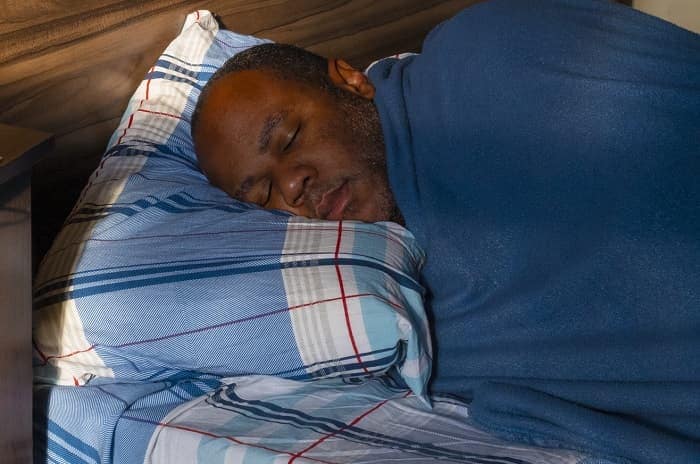Sleeping Well

Trouble sleeping is common during and after cancer treatment. Good sleep habits can help.
Sleep allows your body to refresh, replenish, and rebuild. It helps your immune system work better and keeps you mentally sharp. Most adults need at least 7 hours of sleep each night, but talk to your doctor about what’s right for you.
How Sleep Affects Your Health
Lack of sleep can raise the risk of health problems like heart disease, high blood pressure, and obesity. It can also affect your concentration and memory.
Not getting enough sleep can lead to serious problems for people with cancer, including lower quality of life, depression, and the inability to carry out regular day-to-day activities.
Having Trouble Sleeping Is Common
It’s not uncommon to feel very tired during and after cancer treatment, especially in the first year after treatment. Many things can affect sleep, including anemia, poor nutrition or dehydration, pain or discomfort, side effects of medications, and irregular sleep patterns. Anxiety, depression, fear, worry, and stress can also affect your ability to get enough sleep.
Your doctor or a specialist can help you find ways to save your energy throughout the day and sleep better at night.
Healthy Sleep Habits Can Help
To improve your quality of sleep, try to—
- Soak up some morning sunlight. This increases levels of the hormone melatonin, which is important for sleep.
- Go to bed at the same time each night and get up at the same time each morning, including on weekends.
- Relax with a book or take a soothing bath.
- Make sure your bedroom is quiet, dark, relaxing, and at a comfortable temperature.
- Remove electronic devices, such as TVs, computers, and smart phones from the bedroom.
- Avoid large meals, caffeine, and alcohol before bedtime.
- Move more and sit less. Being physically active during the day can help you fall asleep more easily at night.
Resources for a Restful Night
Health care professionals who specialize in sleep problems can help you. Think about the problems you’re having with sleep and talk to your doctor to uncover any causes or triggers. Some questions to ask a doctor or specialist include—
- Is there a treatment or a change I can make to help?
- What types of support or services are available to address sleep problems?
If you have trouble sleeping, try keeping a sleep diary to share with your doctor. Include information like medicines you take, when you go to bed, how long it takes to fall asleep, your nap schedule, how much you’re exercising, and any alcohol or caffeinated beverages you drink.
- The American Academy of Sleep Medicine provides tips on how to improve your sleep and a list of accredited sleep centers and specialists.
- The American Cancer Society offers information and tips to help you understand and manage sleep problems.
- Sleep disorders are more common in people with cancer. The National Cancer Institute explains why, and how sleep disorders are treated.